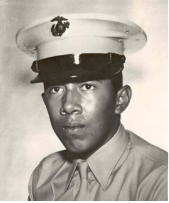John Howell’s Column
Published 12:00 am Tuesday, January 15, 2008

The recent overtures by speedboats of the Iranian Navy towards U.S. Naval vessels in the Strait of Hormuz provides a haunting reminder of an episode that occurred in the Millennium Challenge ‘02 war game.
Millennium Challenge was the most expensive and comprehensive war games ever staged by the Pentagon. “As became clear less than a year later — when the United States invaded a Middle Eastern state with a rogue commander who had a strong ethic power base and was thought to be harboring terrorists — this was a full dress rehearsal for war,” Malcolm Gladwell wrote in “Blink,” a book about decision making and the art of “’thin-slicing’ — filtering the very few factors that matter from an overwhelming number of variables.”
In the Millennium Challenge ‘02, the friendly forces — the Blue Team — “was given greater intellectual resources than perhaps any army in history,” Gladwell wrote. “The point of Millennium Challenge was to to show that, with the full benefit of high-powered satellites and sensors and supercomputers that [the fog of war] could be lifted,” he continued.
The Blue Team had “an unprecedented amount of information and intelligence from every corner of the U. S. government and a methodology that was logicial and systematic and rational and rigorous,” Gladwell wrote. “They had every toy in the Pentagon’s arsenal. To command the Red Team, the Joint Forces Command (JFCOM) chose Paul Van Riper, a Marine Vietnam veteran who retired after a long, distinguished career in military leadership and training. “Van Riper didn’t believe you could lift the fog of war,” Gladwell wrote. “From his own experiences in Vietnam and his reading of the German military theorist Carl von Clausewitz, Van Riper became convinced that war was inherently unpredictable and messy … .”
“On the opening day of the war game, Blue Team poured tens of thousands of troops into the Persian Gulf,” Gladwell continues. “they parked an aircraft carrier battle group just offshore of Red Team’s home country. There, with the full weight of its military power in evidence, Blue Team issued an eight-point ultimatum to Van Riper,” including “the demand to surrender.”
The Blue Team thought it had covered all of its bases by knocking out Van Riper’s microwave towers and fiber optics lines, thinking that the Red Team would be forced to use its cell phones, which could be monitored.
Instead, the Red Team resorted to “couriers on motorcycles, and messages hidden inside prayers,” Blink’s author wrote. Communication between planes and control towers was established using a system of blinking lights recycled from World War II.
“On the second day of the war [Van Riper] put a fleet of small boats in the Persian Gulf to track ships of the invading Blue Team navy. Then, without warning, he bombarded them in an hour-long assault with a fusillade of cruise missiles,” Gladwell continued. “When the Red Team’s surprise attack was over, 16 American ships lay at the bottom of the Persian Gulf … 20,000 American servicemen and women would have been killed before their own army had even fired a shot,” had the attack not been an exercise.
The lesson was obviously lost on the Pentagon planners of Millennium Challenge. They simply turned back the clock, told Van Riper that all the damage that he had inflicted was not really possible. “’The second round was all scripted,… ‘” Van Riper told Gladwell during his research for Blink, “’and if they didn’t get what they like, they would just run it again.’”
That we can be vulnerable to an enemy of limited means but unlimited determination and improvisation should have been learned on September 11, 2001.
That the Pentagon chose to ignore the lessons of those first 36 hours of Millennium Challenge ‘02 points to the vulnerability of our overconfidence in our military-industrial establishment.
That others may have well studied those first 36 hours of Millennium Challenge may be evident in those videos of speedboats darting around the the Strait of Hormuz.





